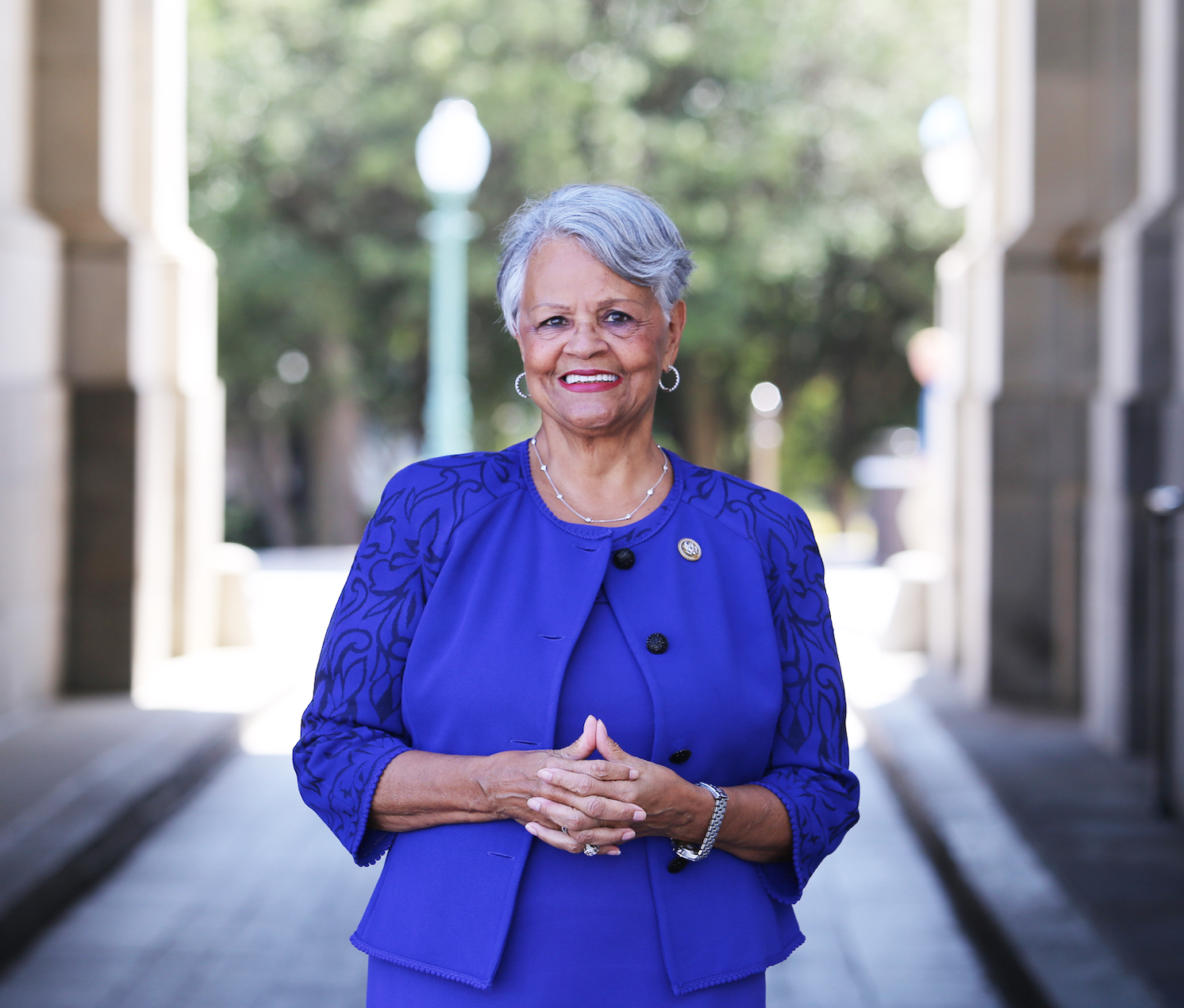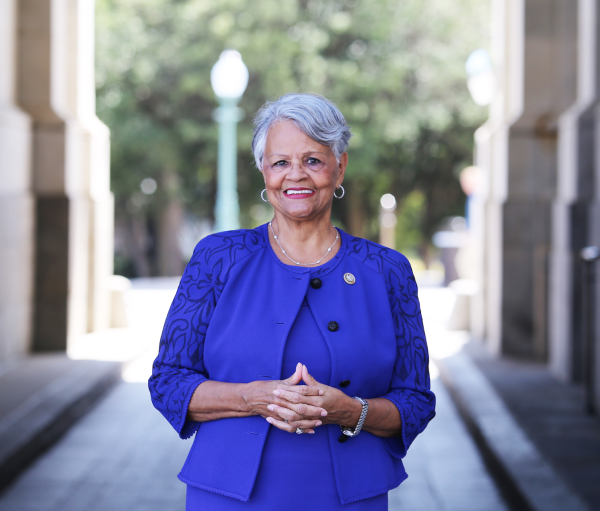KID REPORTERS’ NOTEBOOK
Transforming History: Women in Congress


U.S. Representative Bonnie Watson Coleman is the first Black woman to represent New Jersey in Congress.
United States Representative Bonnie Watson Coleman has represented New Jersey’s 12th congressional district since 2015. Before being elected to the House of Representatives, Watson Coleman, a Democrat, served in leadership roles in New Jersey. When her father, John S. Watson, died in 1996, she decided to run for the New Jersey General Assembly. She served in the Assembly from 1998 until 2015. Four of those years were spent as Majority Leader.
“I really had no intentions of running for elected office,” Watson Coleman told me during a recent video interview. “But it was my way of keeping my father alive and honoring the work he did.”
Watson Coleman is the first Black woman to represent New Jersey in the U.S. Congress. In that role, she has been a trailblazer. Early in her career, she said, “There were very few women. On business retreats, I’d be the only woman or African American.”

Sasha spoke with U.S. Representative Bonnie Watson Coleman and Deborah Walsh, the director of the Center for American Women and Politics (CAWP) at Rugers University.
INCREASING ACCESS FOR EVERYONE
Watson Coleman’s life in politics has been lonely at times, but her family members have helped her cope. “Now, there are many organizations to help women become leaders in their respective fields, get into politics, and become elected officials,” she said. “The same [is true] for African American women and men.”
In her Congressional role, Watson Coleman raises issues that otherwise wouldn’t be addressed. For example, she she sponsored the CROWN Act*, which is short for Creating a Respectful and Open World for Natural Hair.
“The CROWN Act is a bill that would amend a part of the Civil Rights Act of 1968 that relates to housing and employment discrimination,” Watson Coleman explained.
If passed, the legislation would make it illegal to deny a person the ability to purchase or rent a home or get a job simply because of the way their hair looks.
“If it’s natural and very wavy, and it has dreadlocks or certain knots, like Bantu knots [which originated in southern Africa],” Representative Watson Coleman explained, “It expresses an Afrocentricity.”
Watson Coleman chose a life in public service, she said, in order to help people who have historically been marginalized. “I’ve always found myself in career positions that address illegal activity against minorities, against those individuals who were once institutionalized,” she told me.
The Representative works to ensure that everyone has access to higher education, healthcare, and safe communities. When asked if she had a message for young people, she said: “There’s no ceiling to what you can do or think. You only have to imagine it and then work hard for it. You can be President of the United States. You could be a chief executive officer. You could be a lawyer. There’s not a thing you cannot be.”

“History books don’t show a lot of women in leadership,” says Deborah Walsh, the director of the Center for American Women and Politics.
“A LOT OF TALENT”
Deborah Walsh recognizes the importance of having women leaders like Watson Coleman in political life. Walsh is the director of the Center for American Women and Politics (CAWP) at Rutgers University in New Jersey. Founded in 1971, CAWP is a research organization that encourages women to run for elected office and supports those who are already serving.
When CAWP was founded, there were only 15 women in Congress. “Now, we’re at 145 women,” Walsh told me. “At Rutgers, you can get your PhD in Women and Politics, which is the only place in the country you can do that.”
Walsh is dedicated to helping women succeed in politics. Having women leaders, she said, benefits everyone.
“There’s the fairness issue, and then there’s wasting talent,” Walsh told me via video. “There’s a lot of talent [lost] if we aren’t pulling women into the mix. What we have found over the years through research is that women bring different life experiences to the table, and all of those experiences shape the things that they care about.”
CAWP also runs campaign training programs for women and leadership programs for students. A reading project ensures that young people learn about women in political leadership.
“We want that leadership to be visible for both girls and boys,” Walsh said. “We want little girls to grow up believing they could be a public leader, and we want little boys to grow up thinking that people who are leaders don’t just look like their fathers. They look like their moms, too.”
CAWP sends a book to every woman lawmaker in the country. The lawmakers are asked to visit a school in their area and read the book aloud to students. Conversations are held afterwards.
“History books don’t show a lot of women in leadership,” Walsh said. The reading program, she added, helps kids realize that they can do anything, no matter their age, race, or gender.
* Update: On March 18, the U.S. House of Representatives passed the CROWN Act by a vote of 235-189. The bill will now be debated and voted upon in the Senate.
